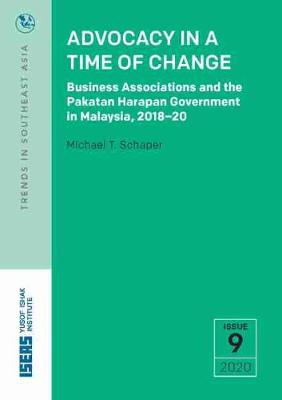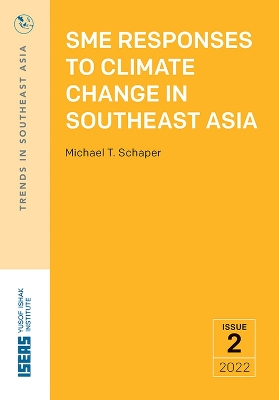Trends in Southeast Asia
2 total works
There are at least 80-100 business associations (such as chambers of commerce or industry-specific bodies) in Malaysia today, representing over 600,000 firms. In February-April 2020, a range of chamber leaders and officers were interviewed to record their experiences of the recent Pakatan Harapan (PH) administration, and any future lessons for business associations in post GE-14 Malaysia.
Few Malaysian chambers have had experience in dealing with changes of government, creating challenges when PH took office. Most associations were able to build effective working relationships with the new administration. Compared to Barisan Nasional (BN) ministers, PH ministers emphasized greater policy rigour, more evidence-based arguments, lower tolerance for corruption, and enhanced public accountability.
Criticisms of PH include an early focus by some ministers on seemingly trivial issues, an initial distrust of some parts of the public service, and an inability to have all parts of the federal government work cohesively.
Some future lessons that business associations have adopted are: avoid taking a partisan stance in policy debates; be prepared for some confusion and lack of clarity in the early days of any new government; expect many existing policies to remain; build relationships with both new ministers and with senior public servants; and ensure that policy positions are well researched and evidence-based.
Most associations feel comfortable in adapting to the March 2020 installation of the new Perikatan Nasional administration.
Changes in government have also prompted associations to review their own internal policy capacity. Interviewees suggest that chambers may need to enhance their advocacy skills, move away from racially based structures, improve their level of public transparency, become more strategic, and improve their own internal governance and management.
Few Malaysian chambers have had experience in dealing with changes of government, creating challenges when PH took office. Most associations were able to build effective working relationships with the new administration. Compared to Barisan Nasional (BN) ministers, PH ministers emphasized greater policy rigour, more evidence-based arguments, lower tolerance for corruption, and enhanced public accountability.
Criticisms of PH include an early focus by some ministers on seemingly trivial issues, an initial distrust of some parts of the public service, and an inability to have all parts of the federal government work cohesively.
Some future lessons that business associations have adopted are: avoid taking a partisan stance in policy debates; be prepared for some confusion and lack of clarity in the early days of any new government; expect many existing policies to remain; build relationships with both new ministers and with senior public servants; and ensure that policy positions are well researched and evidence-based.
Most associations feel comfortable in adapting to the March 2020 installation of the new Perikatan Nasional administration.
Changes in government have also prompted associations to review their own internal policy capacity. Interviewees suggest that chambers may need to enhance their advocacy skills, move away from racially based structures, improve their level of public transparency, become more strategic, and improve their own internal governance and management.
Micro-, small- and medium-sized enterprises (SMEs) account for approximately 97 per cent of all active business entities within the ASEAN region. They are an important contributor to both emissions generation and future reduction.
A recent large-scale, multi-country quantitative assessment was undertaken into how SMEs are dealing with climate change in Indonesia, Malaysia, the Philippines, Singapore and Vietnam. Most respondents reported a high level of concern about climate change.
Over 90 per cent of firms are currently undertaking measures to reduce emissions, albeit that they are typically simple steps such as reducing air conditioning and electricity, recycling or installing low-energy lighting.
Common intentions to deal with future extreme weather events include reducing emissions, developing a disaster plan, or reviewing business insurance policies.
A recent large-scale, multi-country quantitative assessment was undertaken into how SMEs are dealing with climate change in Indonesia, Malaysia, the Philippines, Singapore and Vietnam. Most respondents reported a high level of concern about climate change.
Over 90 per cent of firms are currently undertaking measures to reduce emissions, albeit that they are typically simple steps such as reducing air conditioning and electricity, recycling or installing low-energy lighting.
Common intentions to deal with future extreme weather events include reducing emissions, developing a disaster plan, or reviewing business insurance policies.

